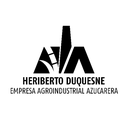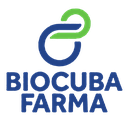Executive Secretary

VIII Simposio Internacional de Química y Ciencias Farmacéuticas
STA
V Simposio Internacional “Seguridad Tecnológica y Ambiental”
Resumen
El dióxido de titanio (TiO2) ha demostrado ser uno de los fotocatalizadores más eficaces en la degradación de desechos. Puede eliminar contaminantes orgánicos e inorgánicos con cierta facilidad y ser utilizado como agente bactericida, sin embargo, su eficiencia está determinada por el fenómeno de recombinación de los pares electrón-hueco (e-/h+). Una de las posibilidades que permitiría contrarrestar este fenómeno es la modificación del TiO2 incorporándole metales de transición. El objetivo de este trabajo es sintetizar y modificar el TiO2 nanoestructurado y estudiar las propiedades fotocatalíticas y antimicrobiana del TiO2 puro y del TiO2/Ag. Los resultados demuestran que el TiO2 obtenido es nanoestructurado y químicamente puro. Los resultados de la propiedad antimicrobiana frente a las bacterias Bacillus subtilis, Escherichia coli, Pseudomonas sp y Micrococcus luteus demostraron que la acción antimicrobiana del TiO2 es más efectiva cuando es irradiado con luz blanca, mientras que el TiO2/Ag fue el que obtuvo mayor halo de inhibición frente a las diferentes bacterias.
Abstract
Titanium dioxide (TiO2) has proven to be one of the most effective photocatalysts in waste degradation. It can remove organic and inorganic contaminants efficiently and be used as a bactericide agent; however, its efficiency is determined by the phenomenon of electron-hole pairs (e-/h+) recombination. One of the possibilities that would neutralize this phenomenon is to modify the TiO2 with the incorporation of transition metals in the structure. The objective of this work is to synthesize and modify nanostructured TiO2 and to study the photocatalytic and antimicrobial properties of pure TiO2 and TiO2/Ag composite. The results show that the obtained TiO2 is nanostructured and chemically pure. The photocatalytic action of TiO2 on the Gentian Violet (GV) dye was greater than that of the composites and, among them; the composite with the highest Ag content degraded more. The results of the antimicrobial property against the bacteria Bacillus subtilis, Escherichia coli, Pseudomonas sp and Micrococcus luteus showed that the antimicrobial action of TiO2 is more effective when is irradiated with white light, while TiO2/Ag composite was the material that obtained the highest inhibition halo against the selected bacteria.
Sobre el ponente

Leonardo Bazán

Discussion




